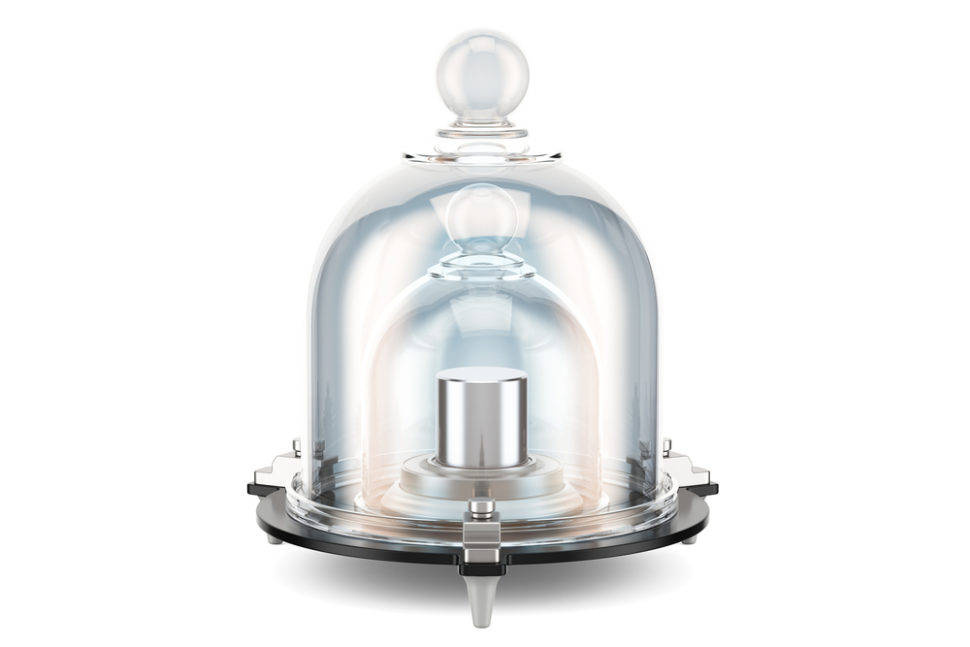The definition of the kilogram is about to change, reshaping the system of measures as we know it.
Tomorrow, November 16th, scientists from 60 member states will convene at the General Conference on Weights and Measures in France. During the event, scientists will vote to change the definition of the kilogram.
Should the majority of the attendees agree to redefine the meaning of the kilogram, the Internation System of Units (IS) scheme will finally be complete. The change will make our current ‘universal’ unit of mass more universal.
All the base units of the IS, including the ampere, second, and the mole, were once defined by physical phenomena. For instance, the second was once measured through the rotation of Earth. Now, a cesium 133 atom’s periods of radiation defines the second.
Out of the seven base units of the IS, six have already undergone redefining. The kilogram, defined by an artifact locked up in a highly secured vault in Sèvres, France, is the last unit to change.
Read More: Meet the World’s Most Accurate Atomic Clock
The Definition of the Kilogram
“At the moment, the kilogram is defined in terms of the mass of a particular thing,” Ian Robinson, a material and engineering specialist at Britain’s National Physical Laboratory, explained. “And if that thing is destroyed or changed or whatever, it’s awkward.”
Redefining the kilogram won’t mean that commercially available weighing scales have to be adjusted. In essence, the change won’t alter the way we weight objects using the kilogram. The move will only affect scientists in the world of high-precision metrology.
Currently, scientists calibrate the kilogram against the International Prototype Kilogram or Le Grand K. It is a platinum-iridium alloy housed underground at the Internation Bureau of Weights and Measures in France.
However, Le Grand K has lost 50 micrograms in the last 129 years. Meaning, the kilogram now weights 999.99995-gram and might still lose fractions of its mass in the years to come. This is something that metrologists don’t like and the very reason why they want to redefine it based on the Planck constant.
Walking the Planck
The Planck constant is a quantum mechanics phenomenon which connects mass with electromagnetic energy. The Planck constant is one of the smallest measurements and also one of the most challenging to measure in the physical world. At the moment, Canada is the record holder in setting the value of the constant with the least amount of uncertainty at 9.1 parts per billion.
Should the vote pass, the new definition of the kilogram would be as follows starting May 20th, 2019:
The kilogram, symbol kg, is the SI unit of mass. It is defined by taking the fixed numerical value of the Planck constant h to be 6.626 070 15 × 10–34 when expressed in the unit J⋅s, which is equal to kg m2 s–1, where the metre and the second are defined in terms of c and ∆νCs.
“[The new definition] will considerably improve the understanding and elegance of teaching about units,” Terry Quinn, the Emeritus Director of the International Bureau of Weights and Measures, said in an interview.
“It will open up the way to unlimited improvements in accuracy of measurements, it will improve greatly the accuracy and extend the possibilities of making accurate measurements at very small and very large quantities.”





Comments (0)
Most Recent